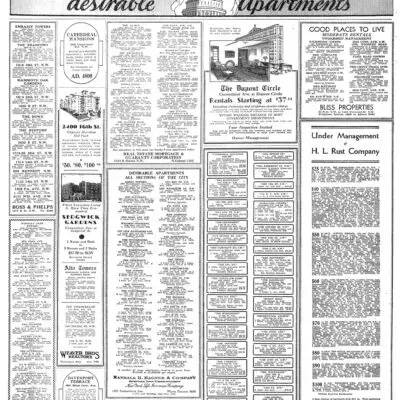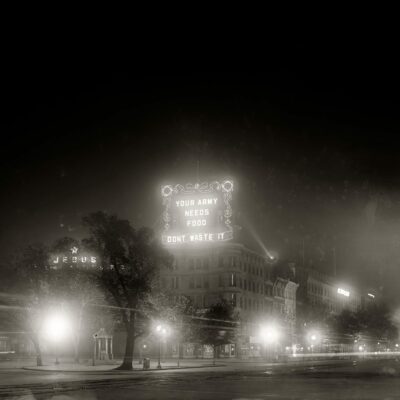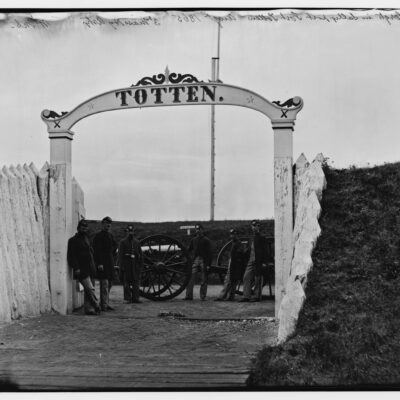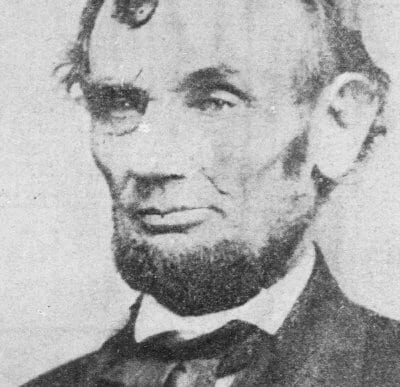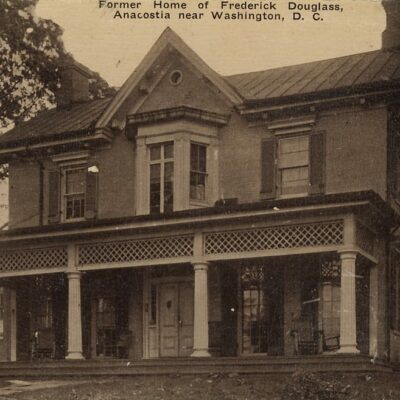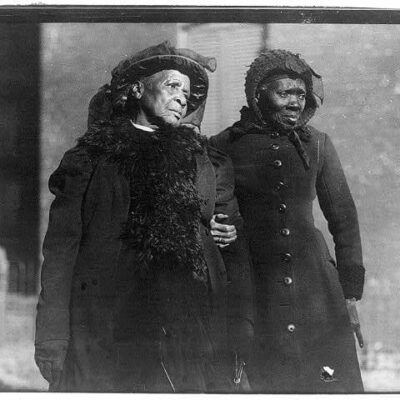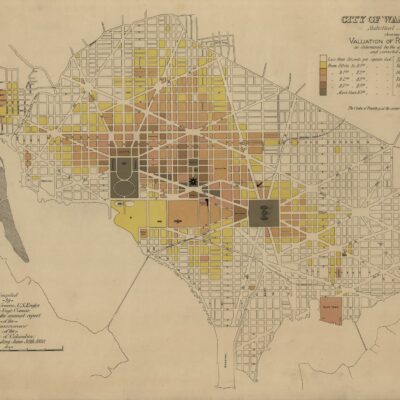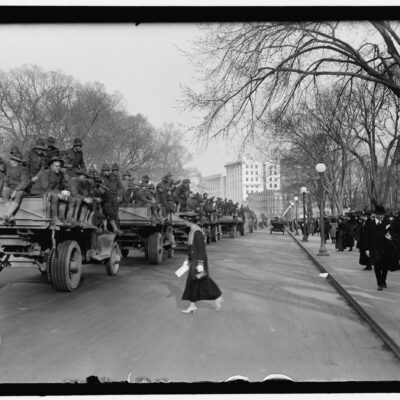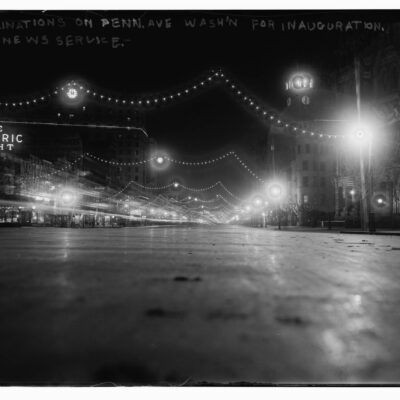Now this is a truly historic and fascinating story from the annals of untold D.C. history.
About a week ago, GoDCer Kicha sent us a great tip on a story from 1869. The story includes an interracial love affair, a complicated love triangle, rife with jealousy, and a gruesome murder. The latter leads to this historic trial, the first in Washington where the jury was racially mixed.
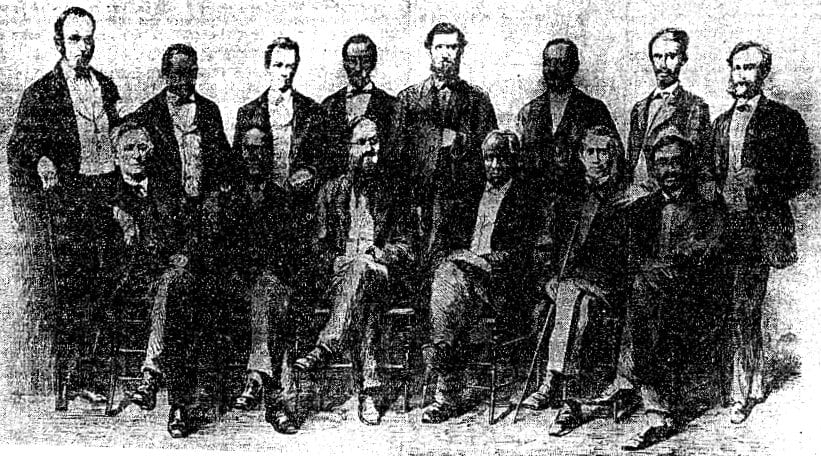
Millie Gaines was a black woman who had a brief affair with a white man, James Ingle. The two met at a boarding house on 1st St. NE, between A and B streets, where she worked and, ultimately, where Ingle was murdered. James had been lying on a couch when Millie brought a large ax down on his head, splitting his skull, instantly killing him.
On July 13th, 1869, the Baltimore Sun published an article detailing the case.
In the Criminal Court to day the case of Millie Gaines, a colored girl, charged with the murder of a white man, James A. Nigle [sic], was called for trial. Mr. D. D. Barrett, assistant counsel for the prosecution, asked that the case be continued on account of the absence of Mrs. Governor Blair, of Michigan, who was an important witness, and who was detained by sickness. Mr. Biddle, for the defense, demanded that the ground for a continuance should be stated in an affidavit. Mr. Barrett responded that the defense could not require the prosecution to furnish affidavits to secure a continuance of the case, inasmuch as it was competent for the District Attorney, being the representative of the President, to decline to prosecute the case at the present time, or at any other time, if he should see fit, in which ase the prisoner would simply be entitled to a discharge from jail on her own recognizance.
The court said that the President, nor the Great Mogul, nor anything short of God Almighty, could keep a prisoner in jail until the District Attorney is ready. Neither the President of the United States nor the District Attorney was beyond the law. He must comply with the requirements of the statute. He must state what he expects to prove by the absent witness, in order that the defense may, if they choose, admit it; or else the court could discharge the accused upon her own recognizance.
The prosecution then said they expected to prove the following by Mrs. Blair:
“On the morning of the homicide, and in the room where it was committed, the prisoner, in the presence of Mrs. Austin Blair, said to the deceased, ‘I will to it,’ to which the deceased replied, ‘You dare not.'”
The defense agreed to admit that the above would be proved, and the court then proceded to empannel [sic] a jury to try the case.
Below is a current Google Map of the approximate location for the boarding house.
The following day, the Baltimore Sun published even more scandalous and salacious details.
The trial of Millie Gaines, charged with the murder of James A. Ingle on the 5th of March last, was resumed to day in the Criminal Court before Judge Fisher. The jury, as selected, is composed of six white and six colored jurors.–There was a very large crowd at the court-house all day, principally of colored people, and the case excited a good deal of interest. The case was opened by Mr. O. D. Barrett, who recapitulated the facts he expected to prove. Mr. A. K. Browne, for the defense, hoped that while the jury pitied the victim they would also have some feeling for the accused, who, he said, was now pregnant. He accused the deceased of having been a libertine, and having had criminal intercourse with the prisoner, and said they expected to prove that at the time of the homicide she was laboring under a hereditary paroxysm of excitement, and subject to such when under the influence of anger. In short, the defense was that she was temporarily insane, partly by hereditary and partly by moral causes, and was justifiable in taking the life of her betrayer. Doctors C. M. Ford and F. S. Walsh testified to having been called to see the deceased on the morning of July 5th, and described the wounds, which seemed to have been inflicted with an axe. Mrs. Van Buskirk, with whom Ingle boarded, and in whose house the girl was employed as a domestic, testified that so far as she knew the relations between the prisoner and deceased were the same as existed between the other boarders and the servants, and never knew of any special intimacy between them.
Now this is where the details get crazy …
Lieutenant John F. Kelley of the Metropolitan police force, testified that the prisoner made a confession to him at the central guardhouse when she voluntarily delivered herself up. her confession was substantially that she had killed a man at Mrs. Van Buskirk’s house, on Capitol Hill; that she kileld him be cause he had gotten her with child, and that he had refused to support the child; that she had told Mrs. Van Buskirk about it, and she told her to keep her mouth, that he was keeping company with a Miss Schaeffer; that one night Ingle told her that he was about taking Miss Schaeffer out to the inauguration, she told him not to do it, on one occasion she locked Miss S. up in her room to prevent her going out with Ingle; afterwards ingle and Miss S. evaded her, and went out, she then went to a room of one of the guests of the house and procured a pistol, and secreted a hammer in her pocket; she then went into the room where Ingle was lying on the sofa, and he jumped up; she aimed the pistol at his breast, but it missed fire, she then struck the deceased with the hammer, which she pulled from her pocket, three or four times, and he fell senseless.
Emma Justiss, a fellow servant with the accused at Mrs. Van Buskirk’s testified to the accused telling her, on the morning of the day of the murder, that there was to be a fuss in the house. After examination of the other witnesses upon points analogous to the above, the court adjourned until to-morrow morning.
The jury acquitted Millie of the crime on the account of insanity. Below is the report as delivered by special dispatch to the Baltimore Sun on July, 21st, 1869.
The trial of the colored woman, Millie Gaines, charged with the murder of her paramour, a Northern man, some months ago has ended, as every one expected, in acquittal. The jury, composed of six black and six white men, rendered a verdict to that effect to-day after a deliberation of less than five minutes. When the verdict was rendered the court room was so crowded with spectators, nearly all of whom were colored people, that it would have been almost impossible to have made place for another person. The crowd showed a disposition to applaud, but this attempt was promptly suppressed by the officers of the court. It remains now to be seen whether the woman’s counsel will show their faith in the defense they set up by proceeding according to law, and making application to the Secretary of the Interior permission to have her placed in the government hospital for the insane. The homicide it will be remembered was committed in a respectable boarding house, where the prisoner was a servant and her victim a boarder. She crushed his skull with an ax while he was reclining upon a sofa.
Millie gave birth to her child at the Washington Insane Asylum on Saturday, October 9th, 1869.




